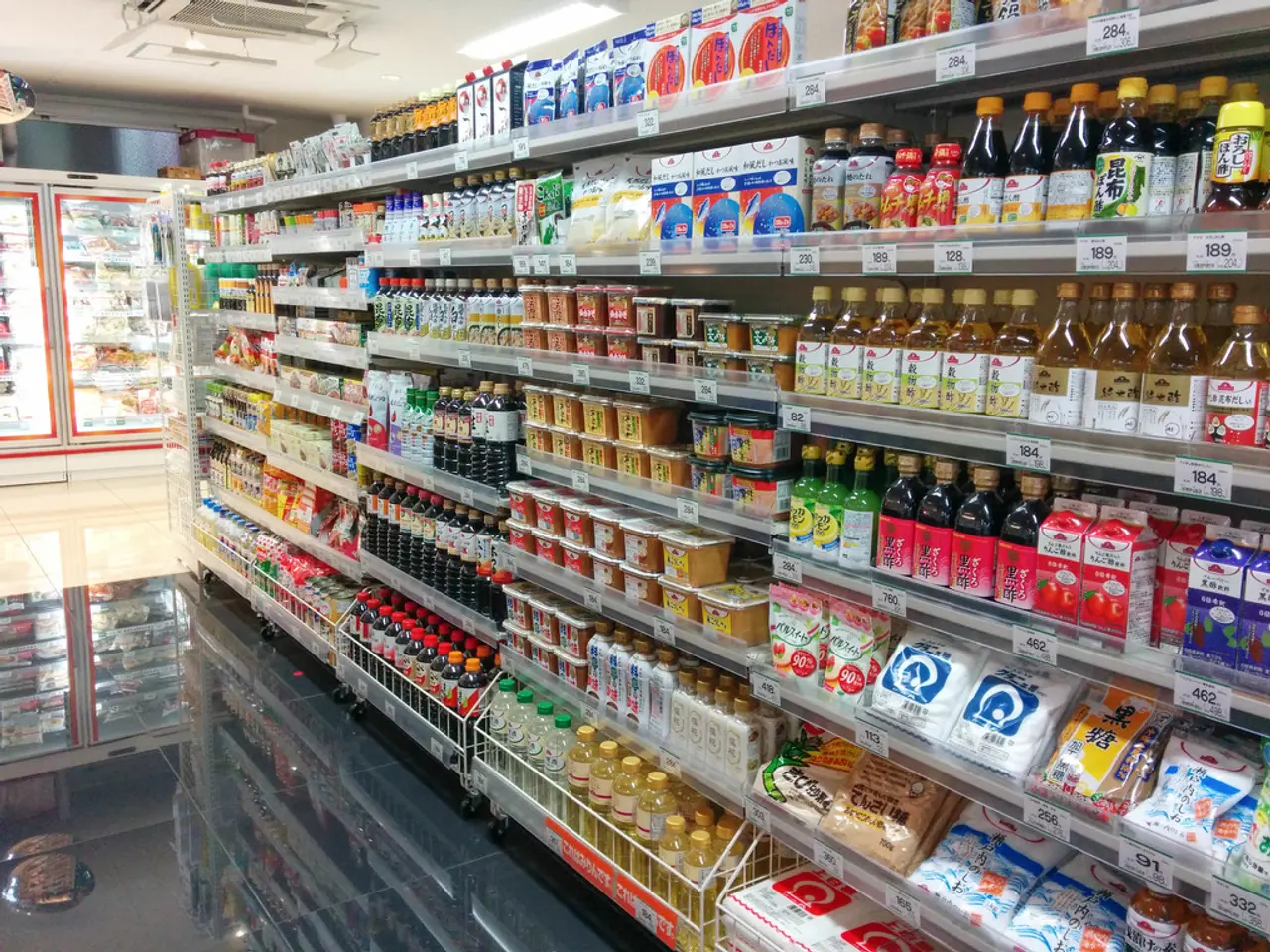Merger negotiations between Grab and GoTo experience delays due to increasing antitrust concerns
In the heart of Southeast Asia, the proposed merger between Grab and GoTo Group is under intense scrutiny by Indonesia’s Competition Commission (KPPU). The deal, if approved, could consolidate upwards of 85% of the ride-hailing and food delivery market in the region, raising significant regulatory and antitrust concerns[1].
The merger, if it goes through, would create unprecedented levels of market concentration in several key sectors in Indonesia, including ride-hailing, on-demand food delivery, digital payments, and e-commerce and logistics. This potential consolidation represents one of the most consequential developments in Southeast Asia’s digital economy in recent years and challenges the KPPU’s ability to effectively regulate large-scale tech consolidations[1].
The competitive response to such market concentration could reshape the entire regional landscape into a more concentrated, strategically segmented environment. Smaller players may be at a disadvantage, and consumers could face higher prices or fewer choices[1][2]. Currently, Grab and GoTo (which includes Gojek, a strong competitor to Grab) compete fiercely in Indonesia, so their merger would consolidate power and reduce rivalry in multiple service areas[4].
The KPPU retains the discretion to evaluate mergers based on their overall impact on market competition, including the possibility of considering whether a party is experiencing financial distress or is at risk of market exit. However, Indonesian Competition Law does not explicitly recognize the 'failing firm' defense, which might make it difficult for the companies to justify the merger based on financial distress[5].
The decision will influence regulatory approaches to future tech mergers in the region. If approved, it could signal a more lenient approach to market consolidation. On the other hand, a rejection could set a precedent for stricter antitrust enforcement[1].
Recent regulatory rejections in Singapore (Transcab-Grab merger) and Taiwan (Foodpanda-Uber merger) could suggest that antitrust enforcement is becoming increasingly stringent across Southeast Asia[3]. Without coordinated antitrust/competition frameworks and harmonised digital economy policies, consolidation risks entrenching monopolies and exacerbating inequality among ASEAN markets.
The regulatory framework in Indonesia appears designed to prevent exactly this type of market concentration, suggesting that approval would require extraordinary circumstances or substantial remedies. GoTo maintains market leadership across ride-hailing, food delivery, and e-commerce sectors, while Grab serves as its primary rival in ride-hailing[4].
As of early August 2025, no final regulatory approval or rejection has been publicly announced, indicating the matter remains unresolved and closely watched by the market and regulators alike. The implications of the Grab-GoTo merger discussions could reshape the entire regional landscape, potentially triggering defensive consolidation or strategic repositioning among other major Southeast Asian digital economy players.
Key points:
- The merger is under active review by Indonesia’s Competition Commission (KPPU)[1].
- It could consolidate up to 85% of the ride-hailing and food delivery markets in Southeast Asia[2].
- Raises concerns about reduced competition, potential monopoly, and consumer impact[1][2].
- The decision will influence regulatory approaches to future tech mergers in the region[1].
- Grab and Gojek (part of GoTo) currently are leading competitors in Indonesia[4].
- The regulatory framework in Indonesia appears designed to prevent exactly this type of market concentration, suggesting that approval would require extraordinary circumstances or substantial remedies.
[1] The Jakarta Post. (2025, July 15). Grab-GoTo merger under KPPU review amid antitrust concerns. Retrieved from https://www.thejakartapost.com/news/2025/07/15/grab-goto-merger-under-kppu-review-amid-antitrust-concerns.html
[2] The Straits Times. (2025, August 3). Southeast Asia's digital economy at risk of consolidation with Grab-GoTo merger. Retrieved from https://www.straitstimes.com/business/companies-markets/southeast-asias-digital-economy-at-risk-of-consolidation-with-grab-goto
[3] Nikkei Asia. (2025, June 24). Southeast Asia's antitrust enforcement tightens as regulators reject tech mergers. Retrieved from https://asia.nikkei.com/Business/Companies/Southeast-Asias-antitrust-enforcement-tightens-as-regulators-reject-tech-mergers
[4] Tech in Asia. (2025, July 22). Grab and Gojek: How the two giants of Indonesia's ride-hailing market stack up. Retrieved from https://www.techinasia.com/grab-gojek-indonesia-ride-hailing-market-stack-up
[5] The Diplomat. (2025, July 10). Indonesia's KPPU faces tough decision on Grab-GoTo merger. Retrieved from https://thediplomat.com/2025/07/indonesias-kppu-faces-tough-decision-on-grab-goto-merger/
- The Grab-GoTo merger, potentially consolidating up to 85% of the ride-hailing and food delivery markets in Southeast Asia, is currently under review by Indonesia’s Competition Commission (KPPU), raising concerns about reduced competition, potential monopolies, and consumer impact.
- If approved, the merger could reshape the entire regional landscape, potentially triggering defensive consolidation or strategic repositioning among other major Southeast Asian digital economy players.
- The regulatory framework in Indonesia appears designed to prevent such market concentration, suggesting that approval would require extraordinary circumstances or substantial remedies.
- The decision will influence regulatory approaches to future tech mergers in the region, with a potential approval signaling a more lenient approach to market consolidation and a rejection setting a precedent for stricter antitrust enforcement.
- Recently, antitrust rejections in Singapore and Taiwan suggest that enforcement is becoming increasingly stringent across Southeast Asia, perhaps indicating that a more rigorous regulatory approach may be on the horizon.
- As the merger discussions continue, the market and regulators remain closely watchful for any developments, as this merger could influence not just Southeast Asia’s digital economy but also the industries of finance, investing, technology, and business, as well as general news, crime and justice, politics, education and self-development, sports, and casino and gambling, given its far-reaching impact on market competition and consumer choice.




